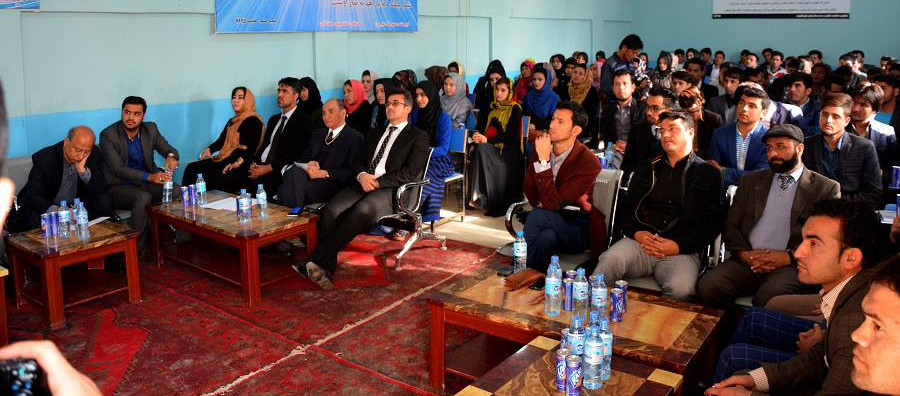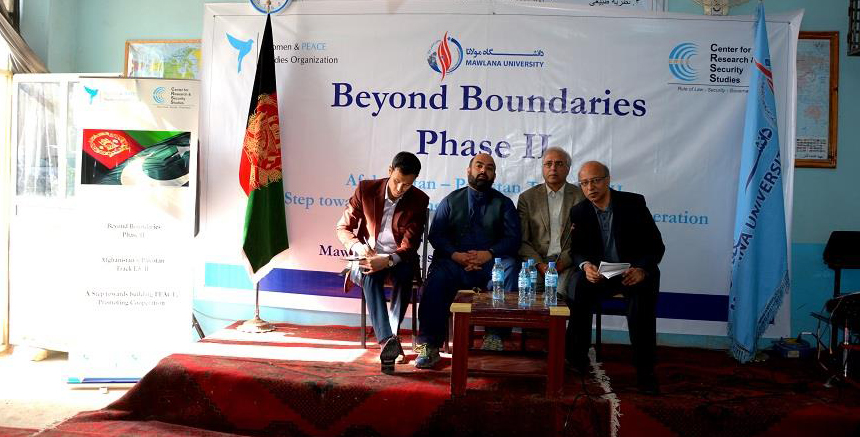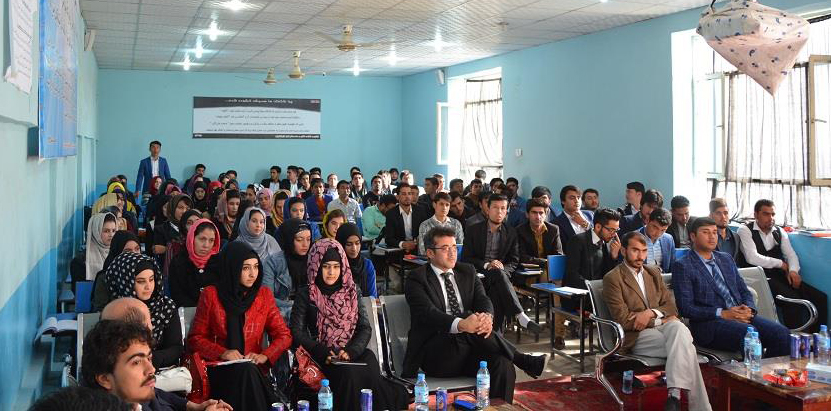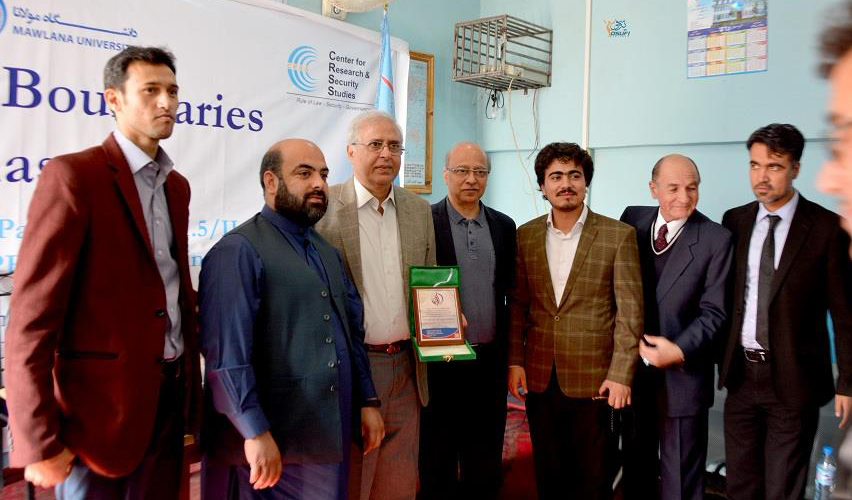During the visit to Mazar-e-Sharif as part of outreach and university interaction planned for the group, selected members from the PAJC visited the Mawlana University on Tuesday 15 November, 2016. The Pakistani speakers were former ambassador Mian Sanaullah and senior journalist Imtiaz Gul, while the Afghan speaker was Bilal Sarwary, senior journalist. WPSO was represented by Naveed Zulfiqar.
About 60 to 70 male and female students and faculty members of the Mawalana University participated at the event, which started with WPSO Zulfiqar briefing the students on the Beyond Boundaries project and introducing the guest delegates. This was followed by presentations by speakers and an interactive, open and passionate question & answer session.
While greeting Pakistani guests Mian Sanaullah and Imtiaz Gul, the young men and women were curious why Pakistan was forcibly sending its refugees back; how would this benefit Pakistan? Was Pakistan not aware of the young people born there, who don’t know Afghanistan at all? Are the Pakistani authorities cognizant of the goodwill the country is losing by enforcing repatriation in a manner that is giving rise to more bad blood, and destroying the goodwill among Afghans? What vision does Pakistan have for political peace and economic stabilization or development of Afghanistan?
And the most important question came from an economics student who asked whether the expulsion of Afghans made economic sense. Student Suraya asked what might happen if she chose to study in Pakistan? What was the guarantee that she would not be brainwashed there, she asked with a cheeky smile, referring to the narrative on Pakistani madrassas. Overall, the tone and tenor of the questions was fairly friendly. Most students were worried about the future and kept asking about the implications of Islamabad’s policies on the Taliban and refugees. Some of their questions did, of course, reflect what the authorities in Kabul told them through the media.
The Pakistani delegates tried to explain to the students what Pakistan has done as part of the reconstruction of Afghanistan. This includes a university at Mazar-e-Sharif, a hospital in Kabul, a kidney center in Jalalabad, nearly 3,000 scholarships for the best Afghan students and a recent commitment for another 3,000 scholarships and another $500 million for reconstruction.
The students were provided with a post lecture – university survey, to evaluate the pre and post lecture perception to gauge the improvement in their perceptions on the other side, understanding of the challenges of Pak-Afghan relations, and awareness about the socio-political conditions in both countries.




